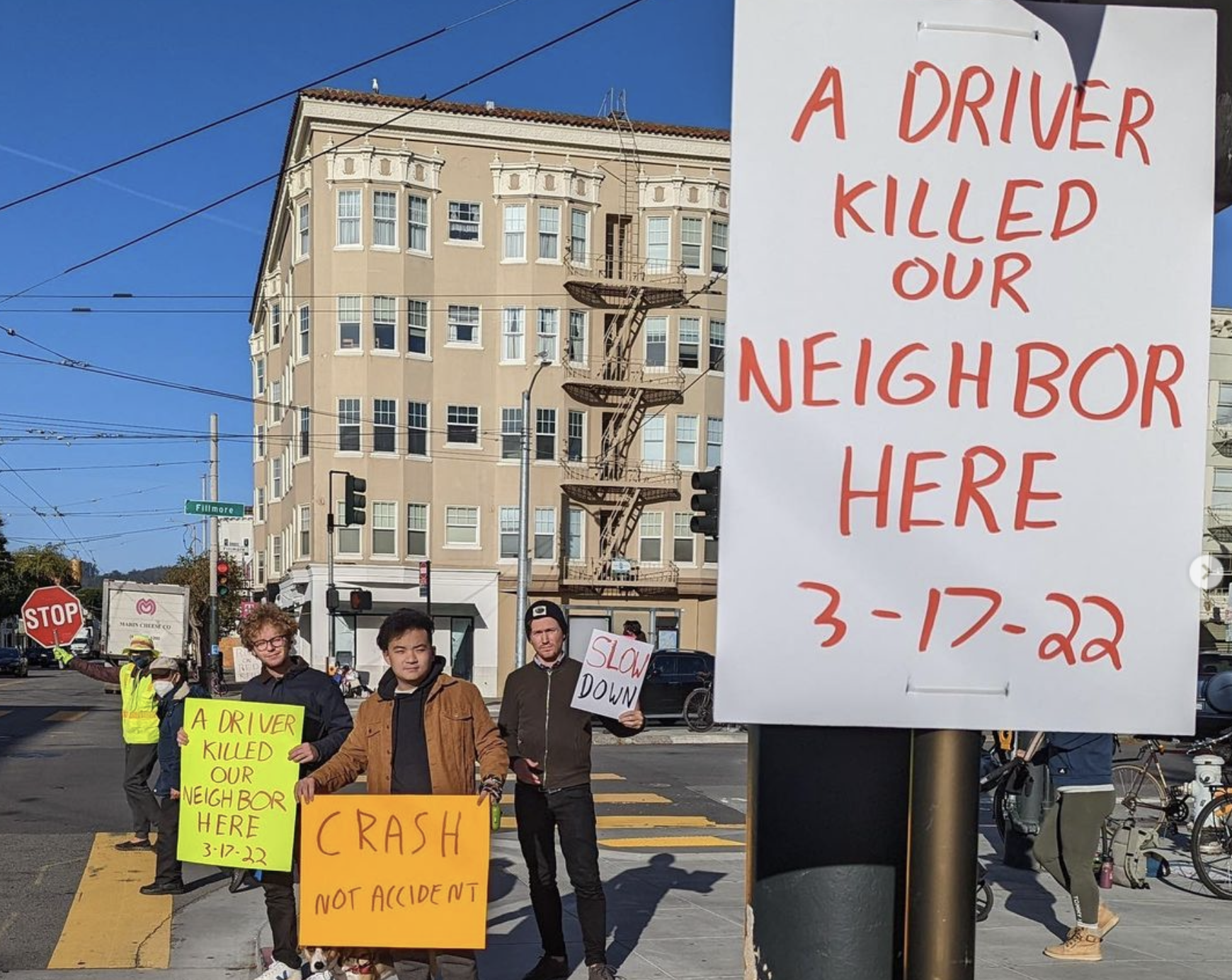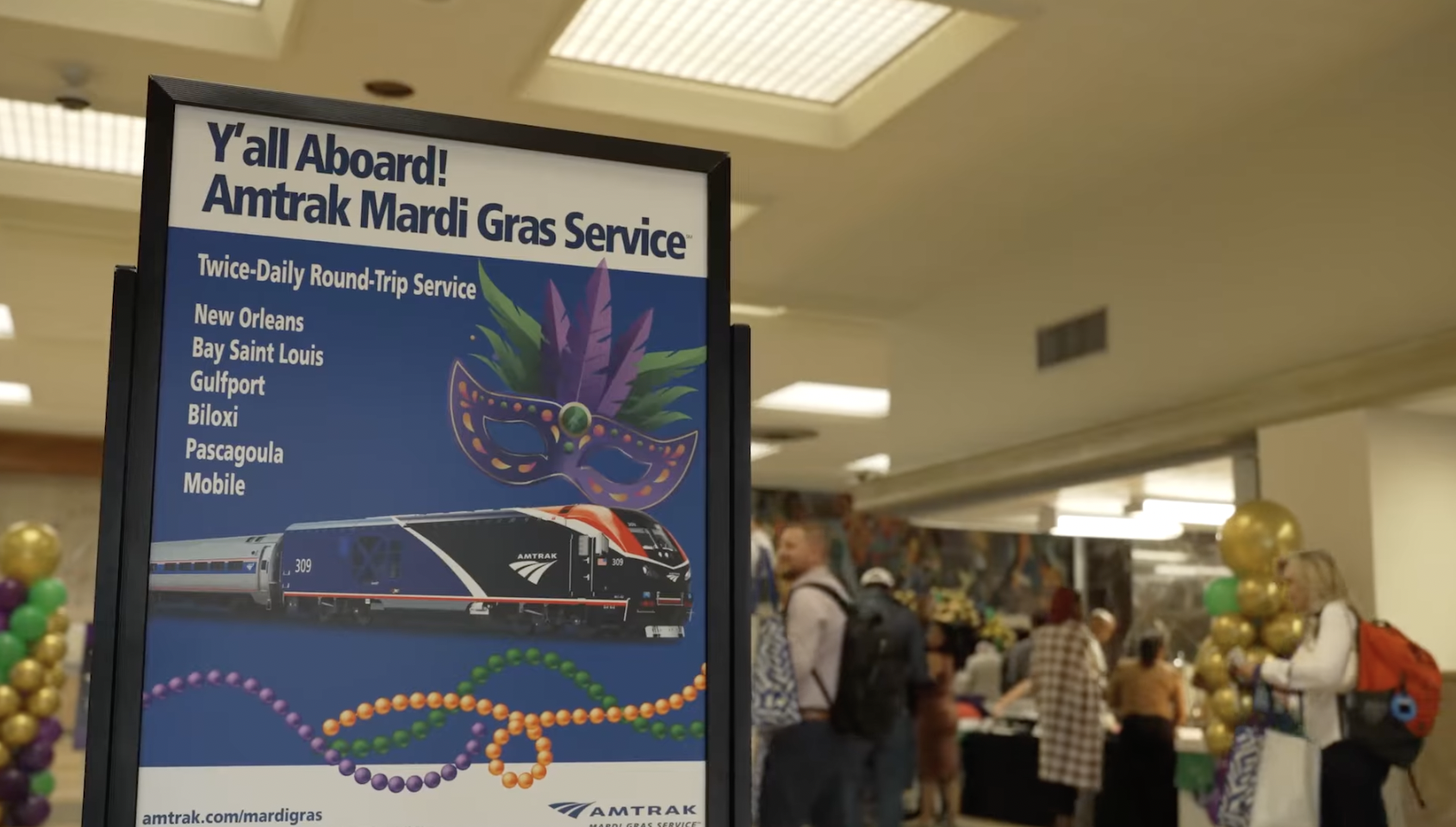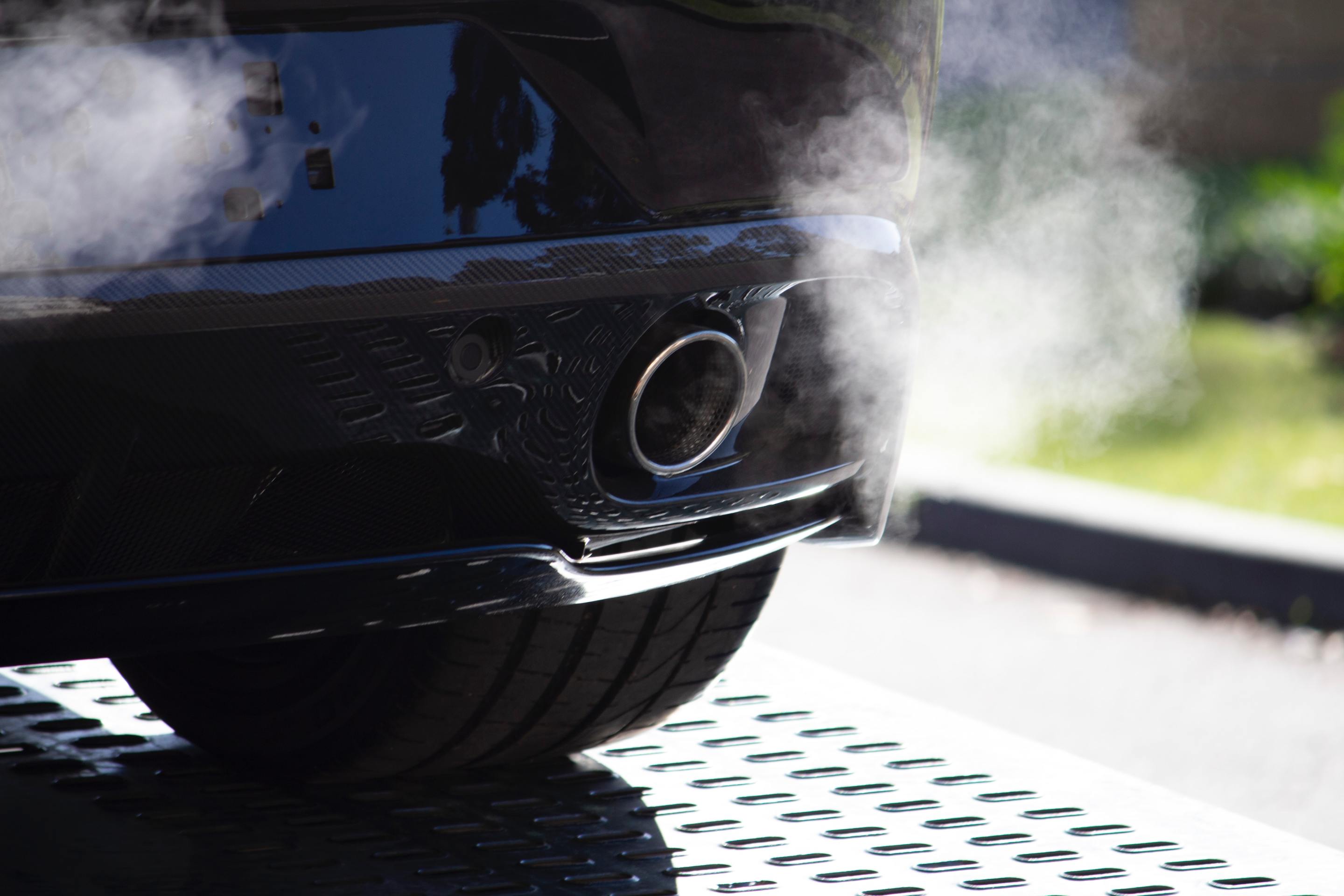The recent debacle with climate-arsonist Joe Manchin is just the latest setback in our country’s failed effort to address climate change. For those of us fighting to end car dominance locally, we encounter this kind of bad faith time and again. But we’re not dispirited by the limits of the traditional political advocacy model that’s led to this moment.
In fact, we’re amped! We’re taking to the streets for civil disobedience actions — and we’d love for others to follow our example.
In San Francisco, the spark for this most recent resurgence of organized civil disobedience started with perhaps the only silver lining of 2020: slow streets and new car-free spaces. But a year later, when our corrupt Mayor London Breed led an abrupt backroom deal to bring car traffic back to the Great Walkway — a beloved car-free park and community hub on a redundant limited-access coastal road — we knew “playing nice” wasn’t going to cut it.
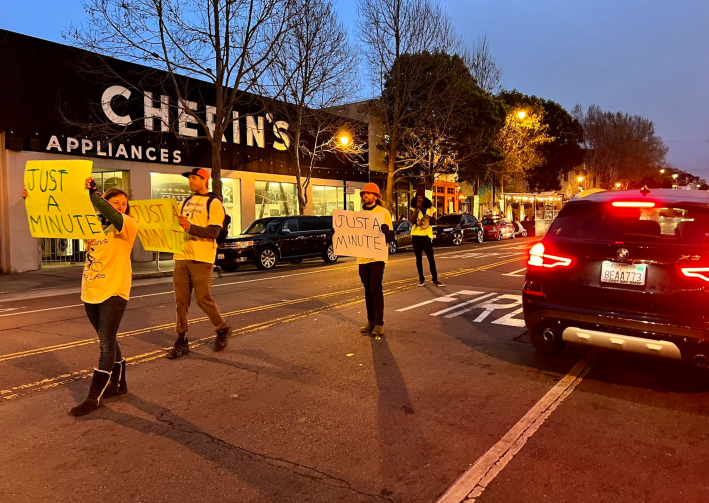
So we organized: About 40 of us rode our bikes at a leisurely 5 mph down the Great Highway — enjoying our park and showing drivers behind us just how unnecessary of a road it is. Then we did it every week, keeping the issue in the spotlight and letting us grow the movement.
With Safe Street Rebel, we’re creating a new model for direct action and civil disobedience and holding our government accountable on transit equity and climate justice. The group has no hierarchy or leadership, and anyone is welcome to organize actions and contribute. We operate through consensus and mutual respect, which has helped us build a wide coalition while keeping true to our values. Some of us have been doing this work for decades, while many of us are just starting out.
Since our first "Great Walkway Slow Ride," we’ve grown our coalition and inspired new kinds of direct action. Our "Just a Minute" protest was a reaction to drivers constantly parking in bike lanes on a popular route. So when a pod of about five people went out and paused traffic in the car lane, we showed the world how effective simple-yet-highly coordinated actions can get results: Hundreds of people emailed SFMTA, which quickly recommitted to the Valencia Street project. "Just a Minute" has since popped up in Chicago.
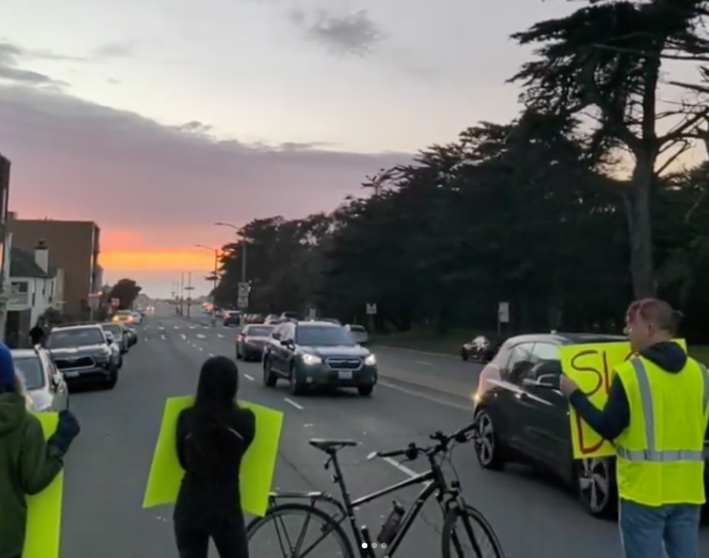
Our "Vision Zero Vigils" are where we visit the site of deadly car crashes to protest, do guerrilla traffic calming, and put up signage saying, “A Driver Killed Our Neighbor Here” in order to remind everyone that pervasive traffic violence is the outcome of designing cities for cars, not people.
Now that we’ve been at it for a year, we’ve learned a few things:
- Take Control of the Streets: We still need to protect each other from potentially murderous drivers, but bikes and pedestrians have many advantages over cars on city streets. This opens up opportunities to take our streets back from cars.
- Community is Everything: Our group identity is anchored in genuine human bonds and a deep respect for each other. Treating this as a group of friends instead of a formal organization removes unnecessary pressure and burdensome sense of obligation. Plus, doing this work with your friends is really fun!
- Civil Disobedience Contains Multitudes: Our First Amendment expressions are not illegal, although we have been threatened with arrest for being in the street and blocking cars. Still, everyone has different risk tolerances, so it’s crucial to have varied ways for people to contribute. Our direct actions can have varying degrees of risk, and planning and iteration helps us be prepared for most scenarios.
- Simple and Repeatable Actions Work: Documenting our processes and creating templates encourage and make it easy for new members to organize actions while reducing burnout. When we go out into the streets with a plan, we learn something new and make changes for the next action.
- Class Solidarity is Essential: Dismantling car dominance means first acknowledging its power over working people. Our built environment is designed for car dependency. We have to be mindful to not blame individual drivers — especially delivery/gig workers — because car dominance makes everyone worse off.
- ACAB: Police are the status quo’s first line of defense, whether it’s terrorizing people of color, protecting dangerous drivers who kill and maim our neighbors or enforcing abortion bans. They will never be as effective as concrete and physical safe-street infrastructure. An inclusive safe-streets movement is one that fully rejects carceral urbanism and the capital that props it up. Direct action allows people to see that we don't have to accept this world.
- There Will be Burnout: This work is exhausting, mentally, physically, and emotionally. A movement that lasts is one where its participants take care of each other and encourage self-care. It’s also one where the community is constantly growing and new people feel welcome to take initiative.
We’re not the first people to do this work. This September will be the 30-year anniversary of the first Critical Mass in San Francisco, and July 25 is the 25th anniversary of the time 5,000 cyclists took over SF streets in a challenge to the anti-cycling actions of then-Mayor Willie Brown.
The ideas that brought people together then, are bringing us together now: "Streets are for people." "We are traffic."
A lot has changed since then. Some gains of the past decade have been curtailed, but some unexpected and visionary activism has stepped into the breach. This is a moment of anger, yes, and fear. But it's a moment of discovery, too — of seeing how much of the cityscape we can change, together.
If you’d like to get involved, organize an action, or learn about how you can start this in your city, DM us on Twitter or send us an email!
Safe Street Rebel (@SafeStreetRebel, aka The Great Walkway Civil Disobedience Society) uses street actions to fight climate change and agitate for car-free spaces, transit equity, and the end of car dominance.
